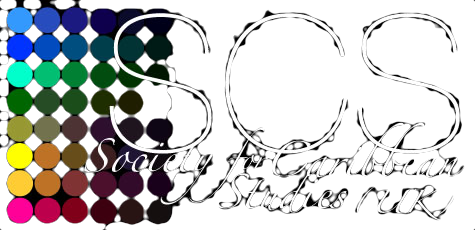
Payne, Crystal
Graduate Fellow in community engagement @ North St. Louis
Bio
Crystal Payne works as a Graduate Fellow in community engagement in North St. Louis, where she trains high-school interns, plans community events, and explores how politics and state policies have perpetuated cultural and historical erasure in the local community. As a PhD candidate at Washington University in St. Louis and a Lynne Cooper Harvey Fellow in American Culture Studies, Crystal’s research is concerned with Caribbean literature, postcolonial studies, identity, diaspora, migration, borders, and hemispheric American studies. Originally from San Fernando, Trinidad and Tobago, she has lived in South Carolina, New York, Japan, and Bonaire. Crystal completed her MA in English at Brooklyn College when she taught College writing as an Adjunct Lecturer. At WUSTL, she is an Assistant in Instruction for classes like “The Empire Writes Back” and “Hindsight is 2020.” In her spare time, Crystal enjoys traveling and reading anything fantasy fiction.
Geographical location : Trinidad and Tobago
Research Area and Interest : aribbean literature, postcolonial studies, identity, diaspora, migration, borders, and hemispheric American studies
Social Media
Panel(s)
- Summary:
Presentation(s)
- Summary: From Moses and Galahad, to Forster, and Tiger, Samuel Selvon’s novels often feature protagonists whose identities are always shifting among the intersecting worlds and politics of the rural, the city, the country, and the global stage. This essay argues that Samuel Selvon has a distinct characterization of Caribbean peoples as exposed through these characters. Beyond his frustration with the often-laissez-faire attitude of his countrymen, this same attitude has inspired an ability to navigate through chaotic worlds and extreme changes. Selvon may or may not have considered his characters to be resilient, and indeed, many of them are narrated through a satirical tone; however, what emerges from Selvon’s writings is his own take on Caribbean identity not as vaguely shifting based on migration and colonial history, but intentionally negotiated by the individual and his ability to make alliances based on what is momentarily convenient. Consequently, Selvon’s vision of the Caribbean is pertinent as a theoretical framework to explore both the historical and the present Caribbean in terms of the region’s decolonial politics. This essay aims to explore the tribalism that Fanon warned would follow nationalism; the corruption of local politics; and discussions about the territories that remained connected to/dependent on their colonial counterparts, through the lens of Selvon’s characterization of the region as consistently negotiated by its natives. In the end, the implications of the Caribbean’s identity as a place of navigated (in)convenient alliances reveal both the strengths and the fissures that continue to define and afflict the region even today.
